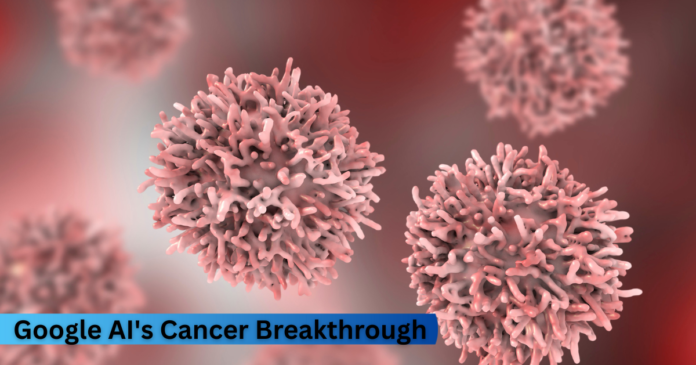Google has achieved a significant milestone in artificial intelligence-driven drug discovery, unveiling a powerful AI system that has identified a previously unknown cancer treatment pathway.
The company’s Cell2Sentence-Scale 27B (C2S-Scale) model, a sophisticated 27-billion-parameter foundation model, has successfully predicted and experimentally validated a novel drug combination that enhances the immune system’s ability to detect hidden tumors.
New AI-Generated Hypothesis for Cancer Treatment
The C2S-Scale model represents a breakthrough in computational biology, designed specifically to decode the complex molecular language of individual cells.
Unlike conventional large language models that struggle with nuanced biological contexts, this advanced system was trained on two comprehensive datasets: real-world patient samples featuring tumor-immune interactions with low-level interferon signaling, and cell-line data without immune context.
Interferons are critical proteins that serve as the body’s frontline defenders against infections and malignancies.
The research team, led by staff scientists Shekoofeh Azizi from Google DeepMind and Brian Perozzi from Google Research, tasked the model with solving a formidable challenge: identifying drugs that could boost immune signals specifically when interferon levels are low—a condition typically indicating nascent tumors evading detection.
After simulating over 4,000 drugs in silico, the model identified silmitasertib, a CK2 protein inhibitor, as a promising candidate.
Remarkably, 70-90% of the model’s drug recommendations had no previously documented connection to enhanced antigen presentation, demonstrating genuine predictive innovation rather than pattern recognition.
What distinguishes this discovery is the rigorous experimental validation that followed. The researchers tested silmitasertib in human neuro-endocrine cell models—a cell type completely absent from the model’s training data.
The results proved extraordinary: combining silmitasertib with low-dose interferon produced approximately 50% increased antigen presentation, significantly improving tumor visibility to immune surveillance mechanisms.
This process of antigen presentation is crucial for enabling the immune system to recognize and attack cancer cells that would otherwise remain undetected.
The findings, published as a pre-print on bioRxiv for open peer review, mark a rare instance where AI has generated actionable therapeutic candidates validated in vitro.
Teams at Yale University are now conducting further pre-clinical and clinical tests exploring additional drug combinations.
Google CEO Sundar Pichai emphasized the discovery’s potential, stating it “may reveal a promising new pathway for developing therapies to fight cancer.”
This achievement demonstrates AI’s expanding role beyond data analysis into genuine scientific hypothesis generation and experimental drug development.




